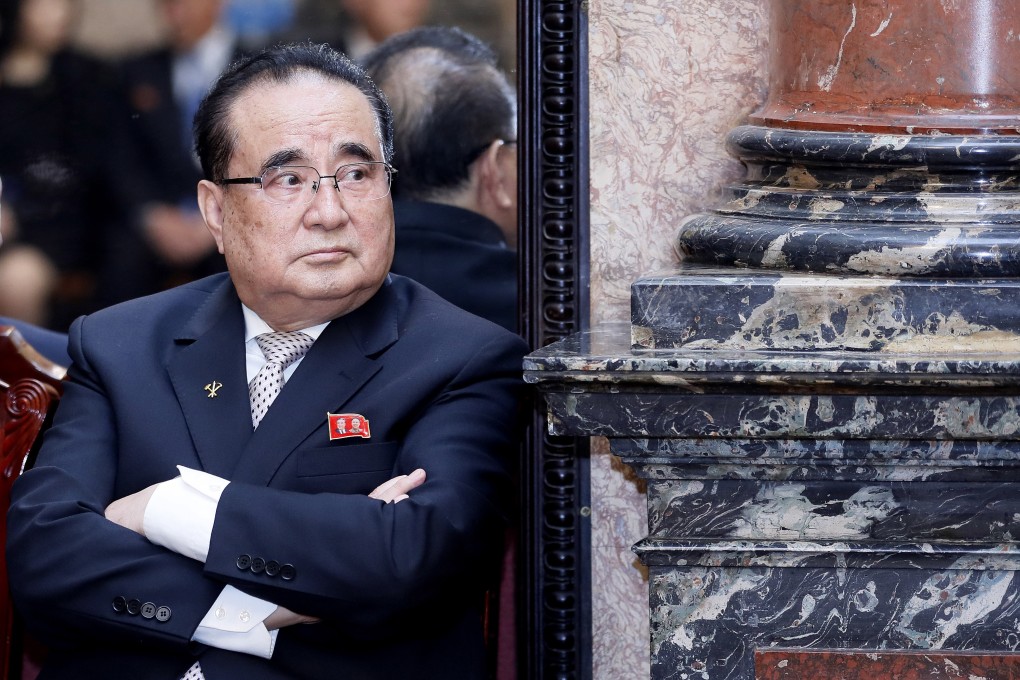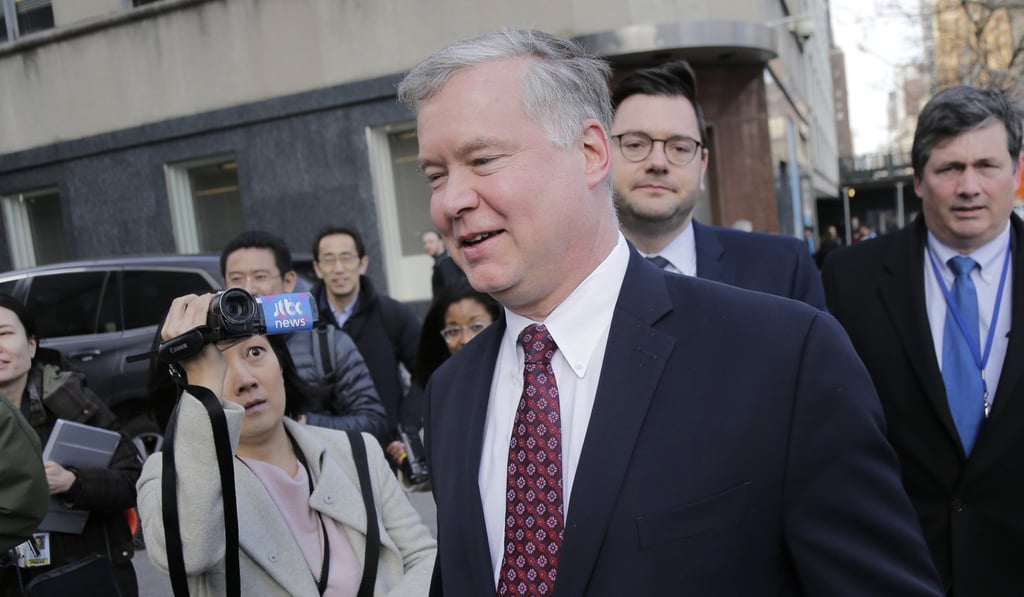The path to resuming US-North Korean negotiations runs through Beijing
- Ri Su-yong, the former North Korean foreign minister, reportedly arrives at China’s capital even as US negotiator Stephen Beigun is in town
- The appearance of both diplomats suggests a new mediating role for China in the next round of denuclearisation talks, analysts say

A top diplomatic aide to North Korean leader Kim Jong-un arrived in Beijing on Tuesday, even as the chief US negotiator was in town, suggesting that China is playing a role in a new phase of denuclearisation talks between the two nations after the collapse of the second meeting between Kim and US President Donald Trump last month.
Japanese and South Korean news media reported that Ri Su-yong, the former North Korean foreign minister who is vice-chairman of the Central Committee of the Workers’ Party of Korea, was greeted Tuesday morning at Beijing Capital International Airport by Ji Jae-ryong, North Korea’s ambassador to China, as well as Chinese Communist Party officials.
Ri’s visit comes as Stephen Beigun, the US special representative for North Korea, was also in Beijing. Officially, Beigun, who arrived on Sunday, is on a mission to continue coordination with China on North Korea policies, according to the US embassy.
No details about the schedules of the two diplomats were disclosed. Still, speculation was rife that Washington and Pyongyang are re-engaging after negotiations broke off in late February between Trump and Kim at their summit meeting in Hanoi, Vietnam.

Boo Seung-chan, adjunct professor at the Yonsei Institute for North Korean Studies in Seoul, said that the trips by Beigun and Ri underscored Washington and Pyongyang’s determination to reset their dialogue, as well as China’s possible role as a mediator.